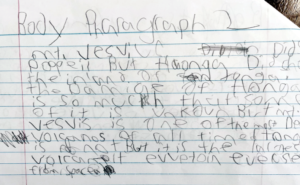Dyslexia and Dysgraphia: What’s the Connection?
Written by Sandie Barrie Blackley, Speech-Language Pathologist
Published on March 31, 2025
Dysgraphia is a language-literacy disability that can be diagnosed and treated.
A Greek term that means, literally, difficulty (dys) writing (graph), dysgraphia pertains mainly to writing by hand (as opposed to keyboarding).
Professor Virginia W. Berninger, whose research has included studies on writing and written language, refers to handwriting as “language by hand” to stress that it involves not only the visible motor processes of letter formation and spacing but also the less-visible processes of spelling and of sentence and discourse formulation. Writing by hand is one of the most demanding language tasks; it is no wonder that people with language disorders struggle with it.
Dysgraphia is often related to other problems such as difficulty with spelling and written expression, dyslexia, and even oral expression. Since handwriting skills require memory for the movement path for each letter as well as for how letters connect, children with working memory and/or attention deficits can have difficulty mastering handwriting skills. Dyslexic children, whose difficulties begin with speech sound awareness, typically have difficulty with the fluent and unconscious association of phonemes (speech sounds) to graphemes (letter symbols).

Dysgraphia diagnosis and treatment should be based upon a comprehensive language processing evaluation. Just as with dyslexia, treatment for children with dysgraphia must be individualized, planned, and explicit — a structured literacy approach. Early intervention is most cost-effective, but it is never too late to improve writing skills or to provide appropriate accommodations.
To learn more about dysgraphia, review our blog about it. To learn more about handwriting, watch our Live Broadcast, “In Appreciation of Handwriting“.
Lexercise online therapy includes writing exercises on letter formation, spelling, writing sentences from dictation, formulating sentences, organizing paragraphs, and essay writing. If you have concerns about your child’s ability to read, write or spell, Lexercise can help. Take a look at our Online Dysgraphia Testing page or contact us at Info@Lexercise.com or 1-919-747-4557.
Improve Your Child’s Reading
Learn more about Lexercise today.
Schedule a FREE
15-minute consultation


